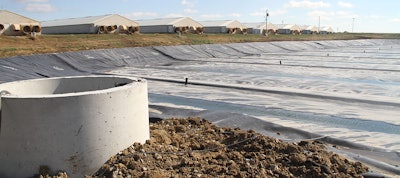
Mixed reports indicate that agricultural polution, most often originating from animal waste, could be contributing to some of the planetary issues surrounding rising temperatures. And while the subject is open for debate in terms of its impact, the reality is that gases and smells released into the environment by farms and industrial facilities are certainly not curbing pollution levels.
This takes us to the heart of many carbon-footprint reducing initiatives - the cost vs. benefit arguments of attacking these necessary, but potentially harmful locations. In a recent Associated Press report by Bernard Condon, the issue of cap-and-trade was again discussed in great detail. Excerpts from his report follow:
Widely derided by politicians on the left and the right and once thought dead even by its supporters, the idea of allowing companies to buy and sell pollution "rights" like stocks is now at the fore again as 151 heads of state and government at the Paris climate conference grope for ways to avert environmental havoc.
Under such "cap-and-trade" systems, polluters are required to keep emissions below a certain level or hand over money to polluters that have managed to fall below theirs and have surplus pollution permits to sell. To cut greenhouse gases, the statewide level, or "cap," is gradually lowered, forcing companies to figure out new ways of running their businesses to cut emissions.
California Gov. Jerry Brown, who's created a bit of stir at the Paris talks scheduled to conclude Friday, has been touting his state's emissions trading market as a model to help solve the global climate crisis. One study, from the non-profit Environmental Defense Fund, says emissions from companies in the market fell 11 percent below the "cap" allowed in 2013, according to the latest data available, while economic growth doesn't appear to have been harmed.
"It has got nothing to do with do-gooders. It's about the almighty dollar," says Lenny Hochschild, managing director of emissions broker Evolution Markets. "It's about incentivizing people."
There are deep concerns about whether these pollution trading systems can cut emissions as much as scientists say is needed, or even if they can work at all.
 Provided by Roeslein Alternative Energy, a membrane is shown harvesting biogas at a hog farm. Once thought dead, allowing companies to buy and sell pollution "rights" is part of talks at the Paris climate conference. (Roeslein Alternative Energy via AP)
Provided by Roeslein Alternative Energy, a membrane is shown harvesting biogas at a hog farm. Once thought dead, allowing companies to buy and sell pollution "rights" is part of talks at the Paris climate conference. (Roeslein Alternative Energy via AP) First proposed by economists in the 1960s, a pollution permit market remained mostly an academic idea until President George H. W. Bush championed it as a way of getting power plants to cut emissions of sulfur dioxide, which leads to acid rain. Annual emissions plunged, at much less cost than expected, and the program is widely considered a success.
The European Union followed with a carbon dioxide trading program in 2005. In addition to buying surplus permits from cleaner polluters, power plants and factories emitting more than their limit could buy permits from "offsets" around the world, projects capturing methane fumes from hogs, for instance, or chlorofluorocarbons used in refrigeration, another ozone killer.
But critics complained some projects got money that didn't appear to help the environment much. In China, companies ramped up chlorofluorocarbon emissions after permits began to trade, leading to accusation of fraud. "They were pumping out more just for the sake of destroying them," says Jeff Cohen, founder of EOS Climate, which helps offset projects involving refrigerants in the U.S. "It was bizarre, upside down."
What's more, the European trading system allowed too many permits at the outset, which had the effect of pushing the price to pollute down sharply. Then the global recession hit in 2008 and polluters didn't need as many permits because they were producing less. With supply and demand out of whack, prices to pollute plunged to near zero.
Two newer carbon trading schemes in the U.S., the one in California and another in the Northeast that launched in 2009, learned from some of Europe's mistakes and seem to be working. The Northeast program, covering nine states, sold permits at an auction rather than give them away. That, plus a few other improvements, appears to have helped. Emissions have fallen 40 percent over 2005 levels.
For its trading system launched three years ago, California made even more tweaks, setting a floor and ceiling for buying permits, for instance.
"Most of the emission cuts from the power sector has come from switching from coal to natural gas because gas prices are incredibly low," says David G. Victor, an economist at the School of International Relations and Pacific Studies at the University of California, San Diego. He says the pollution markets aren't providing much of a push to change how companies behave.
Bernard Condon can be reached at http://twitter.com/BernardFCondon. His work can be found at http://www.bigstory.ap.org/content/bernard-condon.






















